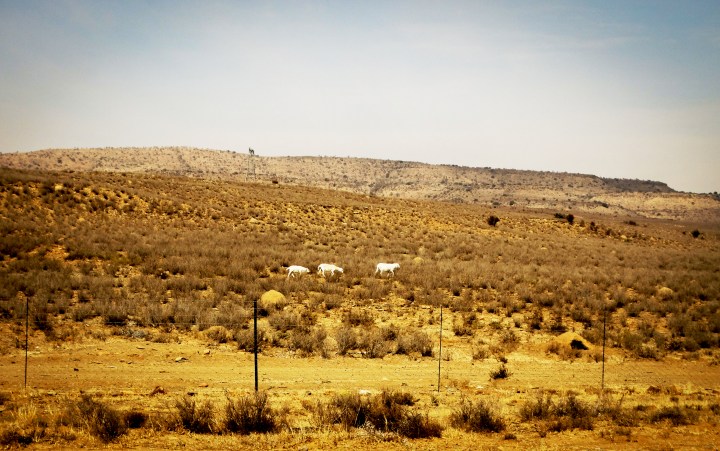LAMB LABELS
Decision on what qualifies as Karoo lamb expected by year’s end

The decision on whether or not to register Karoo lamb as a South African geographical indicator may be made before the end of 2019. Currently, the Department of Agriculture, Forestry and Fisheries is working through the formal arguments presented by those in favour of or against the proposed registration.
If the application is successful, Karoo lamb will be the country’s first agricultural product to have its name, and therefore production, managed as a geographical indicator.
The regulation for geographical indication was gazetted in March 2019. According to this regulation in the Agricultural Products Standards Act, a geographical indication (GI) is a specific name which identifies a product as having a certain quality, reputation or other characteristic because of where it originates.
However, only those who comply with the rules of production registered with the department can use the name in conjunction with their product – it’s not just about where a product comes from, but how it is treated there.
On 2 August 2019, the Department of Agriculture, Forestry and Fisheries (DAFF) called for objections to the application submitted by the non-profit company Meat of Origin Karoo (MOOK) to register Karoo lamb as a South African Geographical Indicator.
The application had to detail the specifications of the lamb, such as its main physical, chemical and microbiological characteristics and how the product is processed. It also had to provide proof that the product does originate from that area and that there is a link between the quality and characteristics of the lamb and the environment. It needed to provide product specifications which can be used by an auditor to verify compliance.
The Executive Officer, Billy Malose Makhafola, who is the Director of Food Safety and Quality Assurance at the department, presides over the application process. Before a call for objections was made, the information in the application had to be verified within 60 days as per the regulation.
According to the regulation, the Executive Officer has the option to visit the group of producers in the geographical area during this time, accompanied by the auditor of the GI, in order to “…confirm that the information submitted is true and complete…”. They may also consult “…persons with specialised knowledge or experience…” in any way relating to the application.
DAFF told TGIFood that the Executive Officer “… did not have any reason to exercise his discretion to visit the group of producers in the geographical region concerned yet. The reason why that discretion has not been yet, inter alia, is due to the fact that the process of considering an application also involves the need to invite the affected members to raise their objections. The EO may still exercise that option after having had the benefit of the objections that have been raised by other affected stakeholders”.
Once the Executive Officer is satisfied that the application meets requirements, they then ask for objections. Objections can be made on any of the following grounds, according to the regulation:
“(a) The proposed GI does not meet the definition for ‘geographical indication’ in regulation 1.
(b) The proposed GI is a generic name.
(c) The group that applied is not representative.
(d) The proposed registration would be disadvantageous to a long-standing trade mark, or a wholly or partially homonymous name in use.”
The objections have to be accompanied by “…scientific and/or any other supporting evidence”.
DAFF told TGIFood that only nine objections were registered with them and all came from individual farmers.
“The main concern is that if the sole use of the name Karoo lamb/ Karoo lam is given to a certain group only, it would be detrimental to other farmers in the same geographical area not belonging to the group including other established brands and websites,” explained DAFF.
MOOK told TGIFood that they received 12 statements from DAFF. They say they received statements of support from the National Red Meat Producers Organisation and Woolworths.
The 10 other objections were from individual “primary producers”. According to MOOK, none of the objections complied with the regulation’s rules for objections as “…they were not able to provide any scientific evidence or supporting evidence for their objections as required by the regulations”.
They have maintained that a GI is not the same as a brand but is “…an intellectual property (IP) right belonging to the region”. They argue that brands can co-exist with the GI, as long as they meet its requirements.
MOOK has until 11 October 2019 to deliver their counterstatements to the Executive Officer. Subsequently, the responses will be shared with those who registered their objections.
Once the objectors have the counterstatements, they can respond in writing or request to be heard.
The Executive Officer has 30 days to take his decision once he has all the responses and any other relevant information.
His decision will be communicated in writing to the applicant and objectors. If the GI is registered it will be communicated in a notice in the Government Gazette. DM



 Become an Insider
Become an Insider